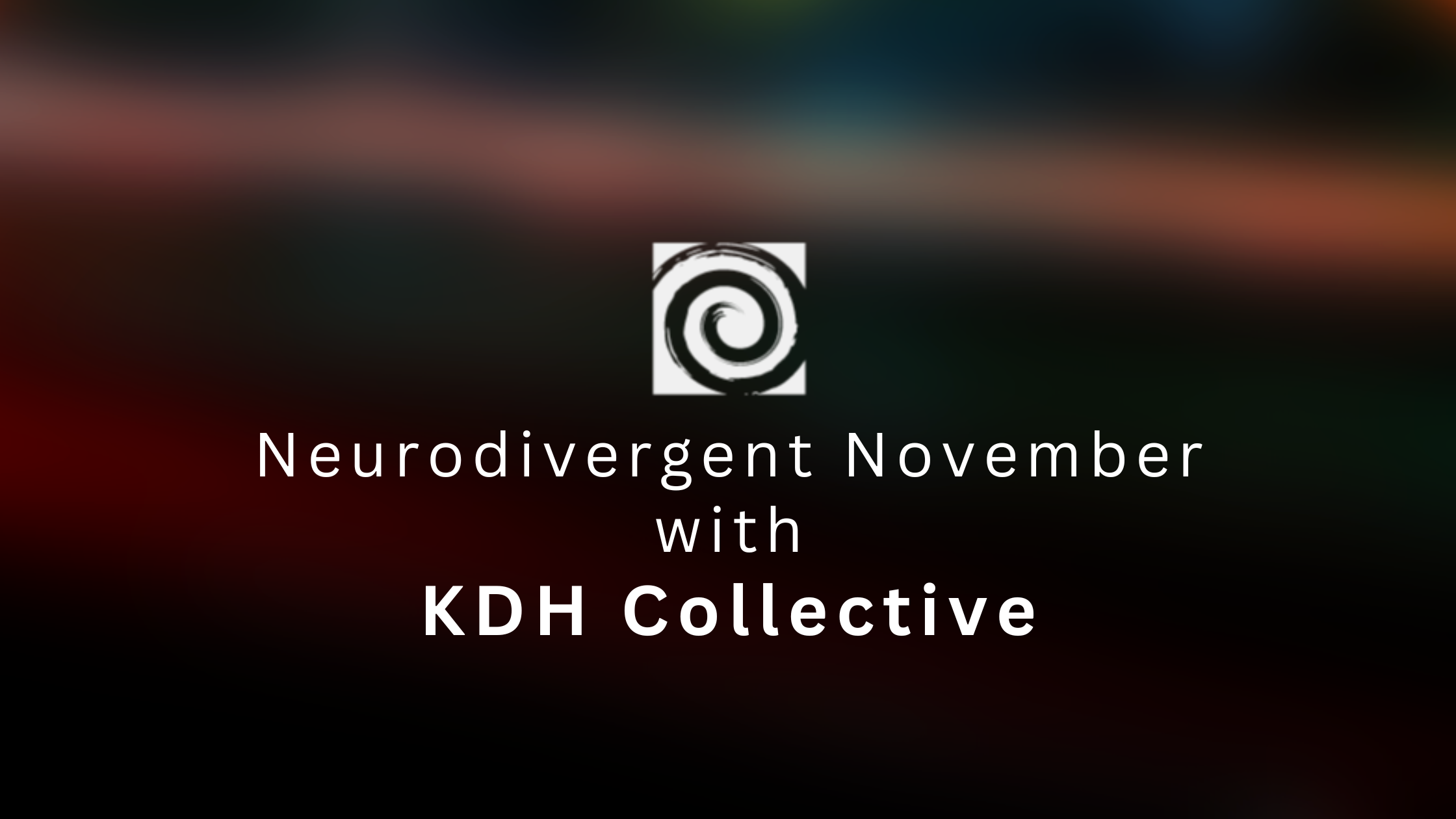1 min read
Autism, Addiction, and Disordered Eating (OH MY!)
When consulting with mental and physical health clinicians, a disconnect exists between clinical expectations and the reality of comorbidity between...

The beauty of being the KDH Collective, a group of neurodivergent clinicians and scholars, is that we have the unique ability to and intense passion for learning more about our own neurotypes and the neurotypes of our clients. We have been affectionately referring to November as Neurodivergent November, and since we as clinicians and the field of mental health as a whole are both rapidly evolving, we wanted to take this month to share some of the newest neurodivergent research and neurodiversity-affirming therapeutic techniques that we have found.
This blog is going to be a little different than some of the others. We interviewed a few of the clinicians, asking them a series of questions about what they have been learning, what resources they have been using, and how their understanding of neurodivergence is impacting them personally and in the therapy room. Check out their responses below.

"Learning how folks with ADHD conceptualize time has been tremendously helpful in practice and informs how I assist them in terms of task initiation and completion."

"Exposure and response prevention (ERP) may look different for Autistic clients, and we want to work with Autism, not against it. As clinicians we need to stay flexible!"

"I have learned just how truly impactful it can be to just explore and validate a neurodivergent client's experience. So many neurodivergent individuals operate under the assumption that they are broken or weird because of the neurotypical framework they've tried to assimilate into their whole lives. By creating a space for exploring, understanding, and accepting their experiences, we empower our clients to be and work with themselves, rather than what the world wants them to be."

"I have been diving deep into some of the conditions that frequently co-occur with Autism and ADHD, like disordered eating and substance use, as well as the impact of menstruation and menopause on the experiences of Autistic folks. So many of my clients struggle with these things and tell me that traditional therapy has not been helpful for them. This has been really reinforcing the need for neurodiversity-affirming therapy for me."
.png?width=142&height=142&name=KD%20(1).png)
"What is the relationship between Neurodivergence and Dissociation? This topic is seldom addressed in advanced trauma classes, yet it is crucial. When we observe dissociation, what are we truly seeing? Is it merely dissociation, or could it be Autism, Sensory Processing Disorder, or ADHD? Or perhaps a combination? Dissociation is often the focal point in trauma work, with minimal focus on Neurodivergence. What if we are overlooking a vital aspect of understanding our clients?"

"Ari Tuckman, PsyD, is one of the coolest professionals speaking, writing, and contributing to the field of ADHD. I recommend his website: https://adultADHDbook.com for more."

"I love that the International OCD Foundation (IOCDF) has a special interest group focusing on OCD and Autism, and anyone can join! It's a great opportunity to connect with and learn from others in the community. You can find it at: https://iocdf.org."

"Unmasking Autism by Devon Price, PhD, is a great book for clinicians and clients alike. Clinicians can gain a better understanding of the Autistic experience, and it has also been very affirming for the clients and support systems I have recommended it to."

"I guess I'm going to be that guy and plug my own work a bit here. I spent a good amount of time trying to understand the influences leading to higher rates of disordered eating and substance use among Autists vs. Allistics (or not Autistic people). It's very nerdy and very scientific, so be prepared! You can find it here: https://www.kdholmeslpc.com/kdh-collective/autism-addiction-and-disordered-eating-oh-my."
Check out these recommended blogs from KDH Counseling and KDH Collective.
Explore our collection of courses on Neurodivergence offering continuing education for mental health clinicians, and register now!

1 min read
When consulting with mental and physical health clinicians, a disconnect exists between clinical expectations and the reality of comorbidity between...
-1.png)
As mental health therapists, we are trained to understand and address distress and to help our clients navigate their inner worlds and external...

2025 is here - it's a time for fresh starts, new beginnings, and – let's be honest – a little bit of dreaming. As clinicians, we're constantly...